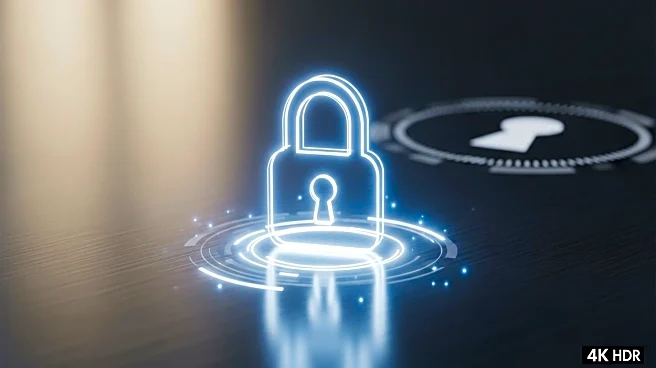What's Happening?
Password managers are increasingly offering digital legacy features to ensure that loved ones can access online accounts after a user's death. These features allow users to designate trusted individuals who can access their password vaults, ensuring continuity in managing shared responsibilities like bill payments and account closures. LogMeOnce, for instance, provides emergency access for free accounts on an individual credential basis, while Keeper allows users to set a delay feature for vault access transfer. Other password managers like Proton Pass, Bitwarden, Dashlane, LastPass, and RoboForm offer similar features, making it easier for users to manage their digital legacy.
Why It's Important?
The introduction of digital legacy features in password managers addresses a critical need for managing online accounts after a user's death. This development is significant as it helps prevent the frustration and complexity associated with accessing or shutting down accounts, which can impact financial and social media management. By providing a structured way to transfer account access, these features ensure that loved ones can maintain household operations and prevent unauthorized access or account takeovers. This is particularly important in an era where digital accounts are integral to daily life and financial management.
What's Next?
As digital legacy features become more common, users are encouraged to plan their digital inheritance proactively. This includes designating trusted individuals and setting up emergency access protocols. Password managers may continue to refine these features, offering more customization and ease of use. Users should also consider naming beneficiaries for financial accounts and deleting unused social media profiles to prevent unauthorized access. The evolution of these features may lead to broader adoption and integration into standard account management practices.
Beyond the Headlines
The ethical implications of digital legacy management are profound, as they touch on privacy, consent, and the legal aspects of account access after death. Users must carefully consider who they trust with their digital legacy and the potential consequences of granting access. Additionally, the cultural shift towards digital legacy planning reflects the growing importance of digital assets in personal and financial identity, prompting discussions on how society manages digital footprints posthumously.










